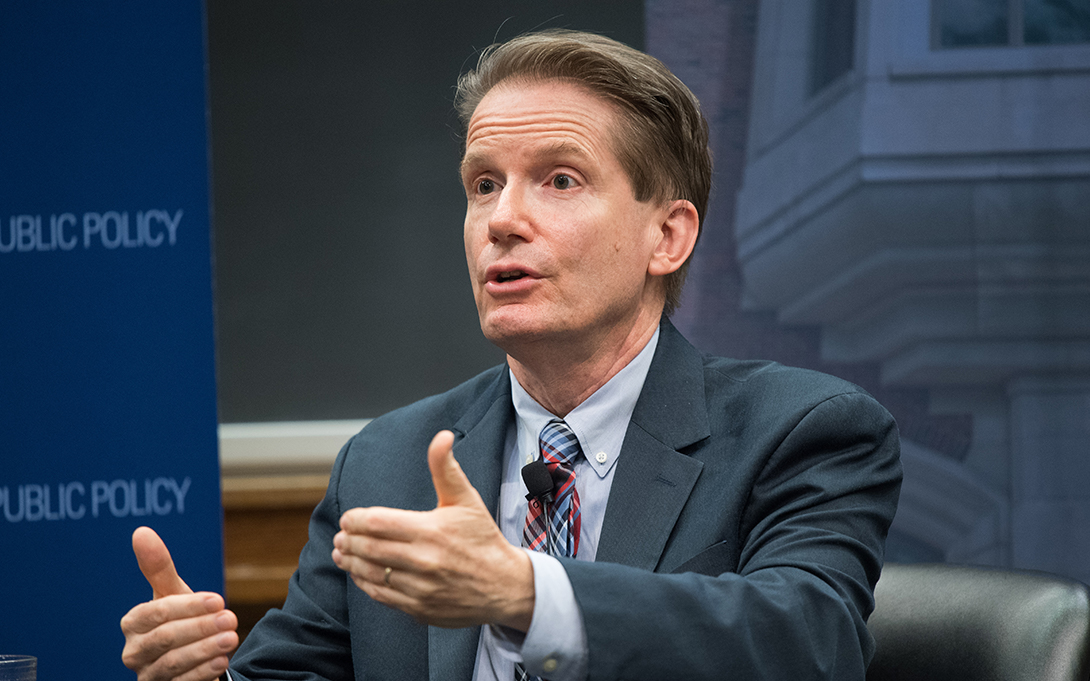
Ford School professor Barry Rabe has been commenting on many issues confronting the push for action on the environment and climate.
In one article in People’s World, which describes the struggle in Congress to pass more aggressive climate action, Rabe notes there is disappointment that the Biden Administration has not been able to do more. “Because of those very, very high expectations, you face a letdown issue,” he said. “And with midterms, you’re always worried, not so much about how people vote, but whether they show up to vote. And for more climate-minded voters, what might compel them to go to the polls in November? What happens between now and then in Congress should be significant. Can Congress put something together or not? I think we got a sense of where the parties might converge late last year when the infrastructure legislation passed, which had some climate-friendly provisions in it.”
Energy companies setting long-term goals for emissions reduction are also creating expectations which they might not be able to meet. Rabe was quoted in S&P Global Market Intelligence that, "It's understandable that utilities want to make these longer-term plans and commitments, and they should. But how realistic pledges made in 2022 will be in 2035, 2040 and 2050 is really uncertain. Emissions reduction pledges are relatively easy to make; they're harder to deliver. And that's been true for a long time."
When Michigan Senator Debbie Stabenow (D-MI) mentioned that she had been able to bypass gas stations and avoid paying higher prices at the pump, E&E Daily wondered, Do Democrats have an EV messaging problem? The article says the comment was meant to highlight one of the benefits of zero-emission cars and trucks, but was assailed by Republican lawmakers and right-wing commentators, who said it showed a lack of awareness of how many Americans are faring right now. Rabe said he was surprised Stabenow didn’t take the opportunity to speak more about making electric vehicles affordable. “I don’t think we’re going to be watching this clip over and over for years to come,” he said. “But it does underscore how we talk about these issues.”
One way that Congress could take action would be by ratifying the Kigali Amendment of the Montreal Protocol on eliminating ozone-depleting substances. Rabe wrote in the Brookings FixGov blog that momentum seems to be building for approval. “The bipartisan foundation behind the 2020 American Innovation and Manufacturing (AIM) Act passage endures,” he writes.
“The AIM process and Kigali deliberations thus far reflect a bipartisan Congressional engagement pattern that endures in some instances, even though this often receives minimal media or scholarly attention… It follows the playbook of some of the largest but rarely studied environmental legislative successes in recent decades, including 2016 chemical safety reform and 2020 conservation funding and clean energy development.
Sweeping Republicans out of Congress and statehouses key to saving environment, People’s World, June 6, 2022
Path to net-zero: Utility execs insist 'we can', S&P Global Market Intelligence, June 9, 2022
Do Democrats have an EV messaging problem?, E&E Daily, June 9, 2022
Ratifying Kigali: Can the U.S. go the distance on a global climate treaty?, Brookings FixGov, May 23, 2022

